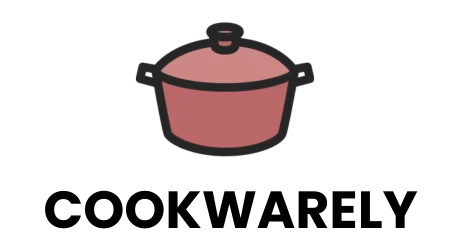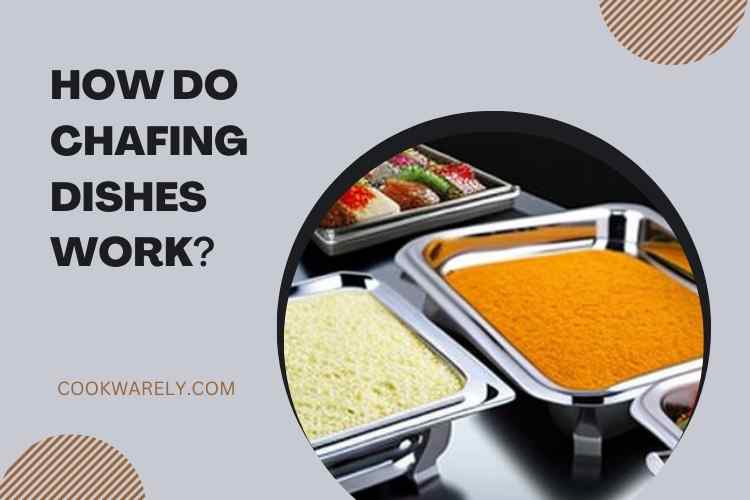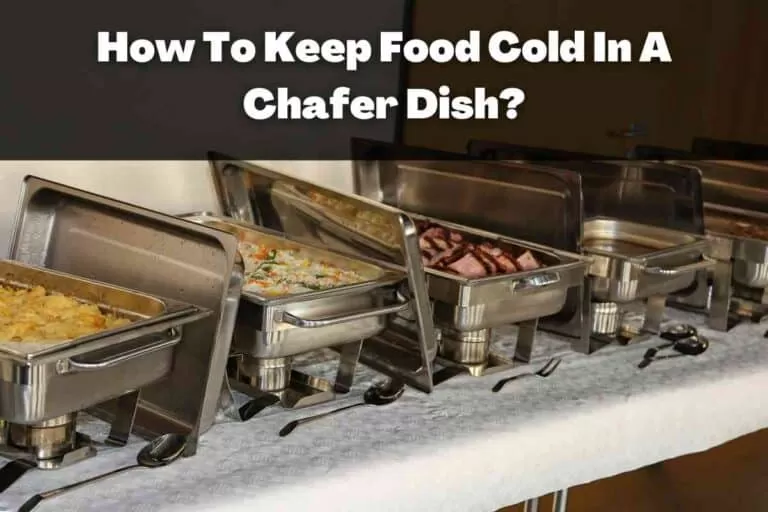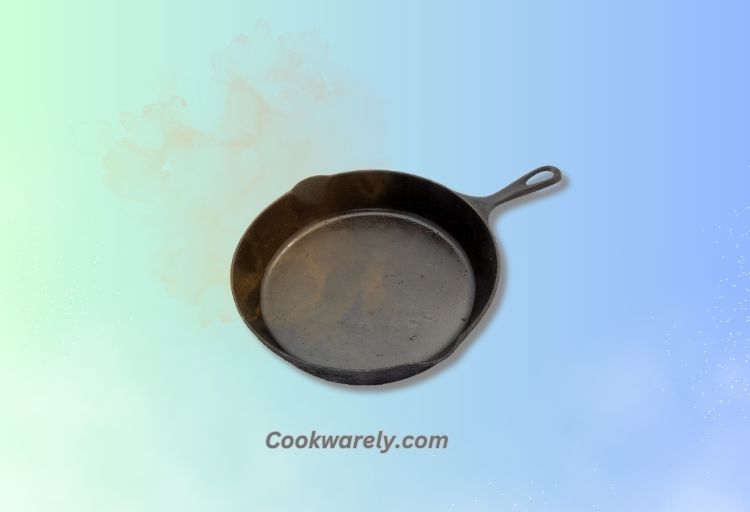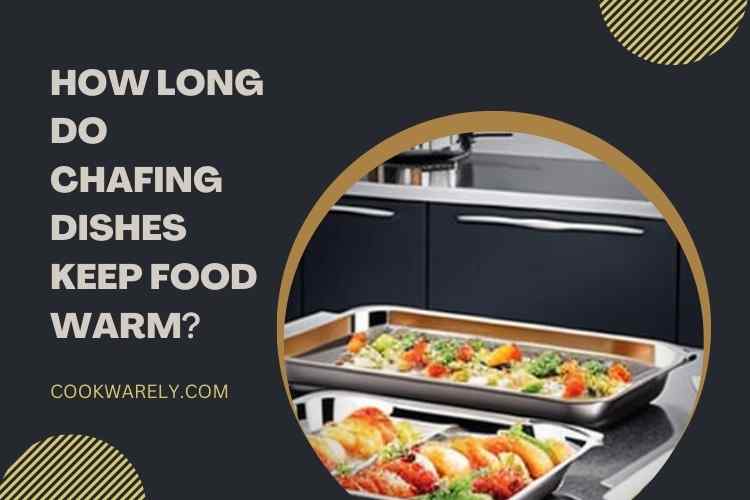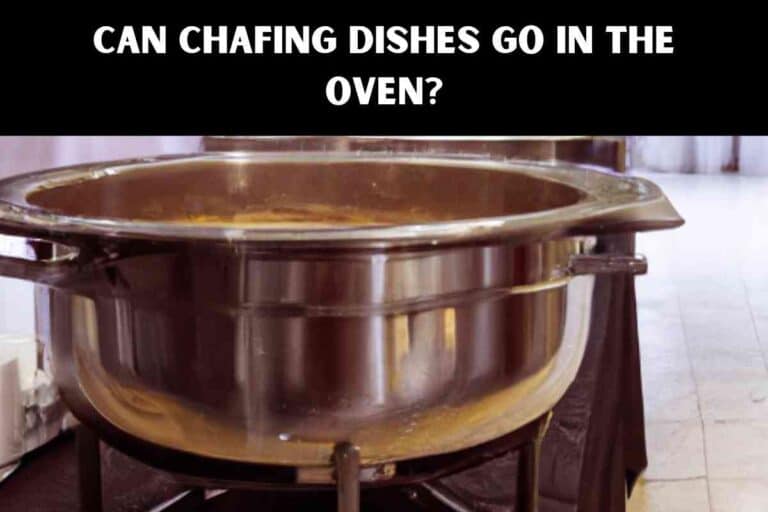Do Aluminum Pans Work On Induction Cooktops?
Does aluminum work on induction? No, aluminum pans don’t work on induction cooktops due to their non-magnetic properties. To use aluminum pans on induction, a ferromagnetic base, like stainless steel, is necessary, or one can opt for tri-ply cookware designed for induction cooking.
Aluminum is not magnetic, which means it will not heat up on an induction cooktop. However, there are certain types of aluminum cookware that are magnetized and will function on an induction cooker. Cast aluminum is one such type of aluminum cookware that will work.
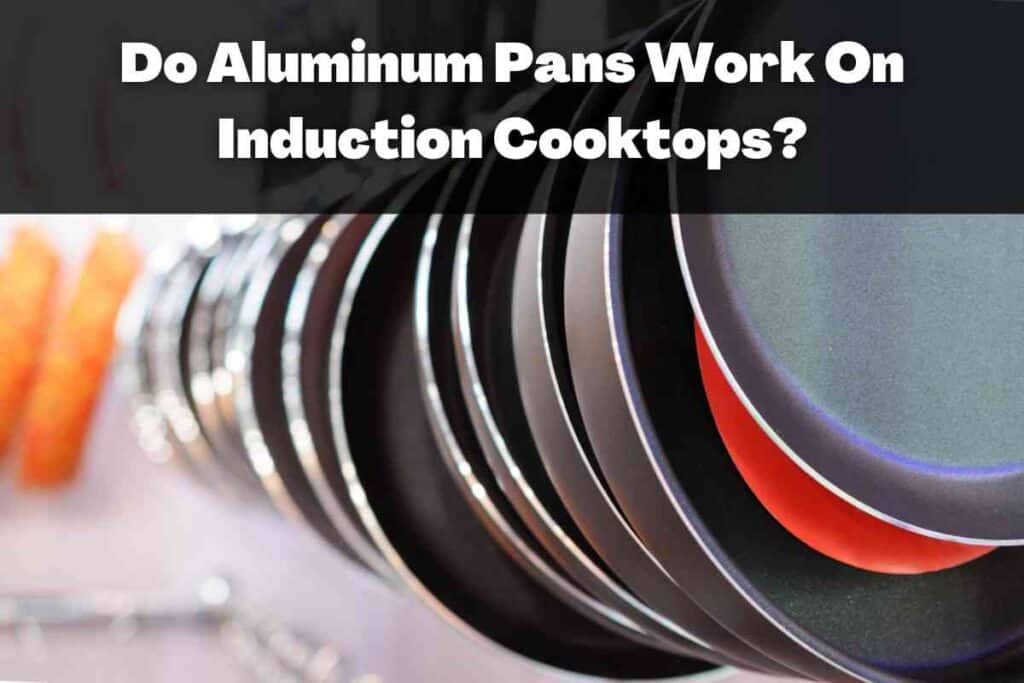
Another important thing to know about aluminum is that the metal will react with acid. This reaction can result in a metallic taste in the foods you’re cooking.
Does Aluminum Work on Induction?
Does aluminium work on induction: Aluminum cookware, on its own, is generally not suitable for use on induction cooktops due to its non-ferromagnetic nature.
Induction cooktops rely on magnetic fields to generate heat, and aluminum lacks the necessary magnetic properties to efficiently heat up through this method. To make aluminum pans compatible with induction, they require a base made of ferromagnetic materials, such as stainless steel.
Alternatively, tri-ply cookware, featuring an aluminum core sandwiched between layers of stainless steel, is well-suited for induction cooking.
Specialized induction disks can also be employed to render non-induction-ready aluminum pans compatible, although this approach may be less energy-efficient.
Moreover, applying computer thermal paste between the pan and induction disk can enhance heat transfer but necessitates periodic reapplication.
It’s important to note that some specialized induction cookers, like the Panasonic metall, are designed to accommodate non-ferrous metals like aluminum.
However, aluminum cookware has been associated with concerns related to aluminum leaching into food, especially when used with acidic ingredients. To mitigate this risk, anodized aluminum or aluminum coated with other metals is often employed.
In summary, while aluminum cookware can be made compatible with induction through the addition of ferromagnetic materials or specialized cookers, it is advisable to consider alternatives such as stainless steel or iron-clad aluminum for more efficient and safe induction cooking experiences.
Can You Spray a Cast Iron Skillet with Pam?
If you’re worried about the safety of using Pam or any other nonstick spray on your induction cooktop, think again. These products contain chemicals and can even be harmful to your health.
To avoid this, try using canola oil seasoning spray instead. This will help you to dose the correct amount of oil and prevent the pan from becoming sticky.
Cast iron cookware can cause scratches to your induction stovetop because of the imperfections of the metal. Cast iron can also cause uneven heating, which leads to hot spots and cold spots.
Another disadvantage of cast iron is its heavy weight. It can scratch and stain your glass induction cooktop. It also tends to hold food residue and burn easily.
If you’re worried about using Pam, you can use it in both baking and cooking. It’s safe to use this cooking spray as long as you use it in a place where there is no open flame.
This way, you can rest assured that it will not catch on fire. You can also use Pam as a healthy alternative to cooking oil or butter.
What happens if I use aluminum on induction?
When cooking on an induction cooktop, it’s important to use cooking utensils made from metal that are compatible with the heat source. Although most aluminum pots and pans will not work on induction, there are some exceptions.
You can buy aluminum pots that have an iron core, which are compatible with induction. However, you will need to test these pots and pans to ensure that they will work on induction.
In order to test whether a pan is compatible with an induction cooktop, simply turn it upside down. Look for a chunk of metal on the bottom of the pan. If the pan does not have a magnet, it will not work.
Some newer cookware will be marked as “induction compatible” or will have an induction symbol. If you’re not sure, you can use a standard kitchen magnet to check its compatibility.
While you should avoid using aluminum on an induction cooktop, you can use aluminum pots and pans on an electric stovetop. As long as you use the proper pans, you’ll be able to cook your food faster and more evenly on the induction cooktop.
A few other tips to consider when using aluminum on an induction cooker include using the right utensils.
How to Use Aluminum on Induction Cooktops?
If you are planning to purchase an induction cooktop, you may be wondering if aluminum pans will work on it. However, you should know that most aluminum pans will not work on an induction cooktop.
The reason for this is that most aluminum pots do not contain any iron-based compounds, making it incompatible with the induction heating system. Therefore, you should always check the cookware first before purchasing it.
The basic principle of induction cooking is that electrical currents in a copper wire react with magnetic elements in your cookware. This leads to direct heating of the pan.
While this method will not work on non-magnetic pans, you can use aluminum pans with magnetic bases on induction cooktops. However, you will have to pay a premium for this type of cookware compared to cast iron pans.
An induction cooktop requires a cooking vessel that is made of ferrous metal. The iron in the cookware concentrates the current. However, thin metals such as copper or aluminum do not have enough resistance to resist the current.
In addition, aluminum and cast iron will not work because they do not have enough thickness to produce the concentrated current.
Does anodized aluminum work on induction?
If you want to use an induction cooktop, you should avoid anodized aluminum cookware. The ferromagnetic base of an induction cooktop prevents it from reacting with other metals, which makes it incompatible with other types of cookware.
Hard-anodized aluminum is also incompatible with induction cooktops, as it has an oxidized top layer and a built-in iron disc.
Hard-anodized aluminum cookware is not compatible with an induction cooktop because it contains too much aluminum and not enough iron to be ferromagnetic.
Ferromagnetic cooktops require a base made of non-magnetic materials. Fortunately, there are some aluminum cookware sets that are specially designed to be compatible with an induction cooktop.
Anodized aluminum cookware is made by immersing the metal in a chemical bath and then applying an electric current. This creates a layer of oxide on the metal, which hardens.
The process has many benefits, such as increasing the life of the cookware, making it stronger and more resistant to high-temperature corrosion.
FAQs
Can You Use Aluminum Pans on Induction Cooktop?
Aluminum pans are not suitable for induction cooking unless they have a magnetic base.
Does Aluminum Work on Induction Stove?
Aluminum cookware is not inherently compatible with induction stoves due to its non-magnetic nature.
Can Aluminum Be Used on Induction?
Aluminum can be used on induction cooktops if it has a magnetic base or is part of a composite cookware with magnetic properties.
Does Aluminum Pan Work on Induction?
Aluminum pans can work on induction if they have a ferromagnetic base or are specifically designed for induction use.
Does Aluminium Cooker Work on Induction?
Aluminum cookers require a ferromagnetic base or compatibility with induction for use on induction cooktops.
Does Aluminium Utensils Work on Induction?
Aluminium utensils need a magnetic base or induction compatibility to function on induction cooktops.
Can You Use Hard Anodized Cookware on Induction Cooktop?
Hard anodized cookware can be used on induction cooktops if it has a magnetic base or is labeled as induction-compatible.
What Happens If You Use Aluminium Pan on Induction Hob?
Using an aluminum pan on an induction hob without a magnetic base will result in ineffective heating.
Does Cast Iron Work on Induction?
Cast iron cookware is well-suited for induction cooking due to its magnetic properties.
How to Use Aluminum on Induction Stove?
To use aluminum on an induction stove, ensure it has a magnetic base or is designed for induction use.
Can You Use Aluminium Pans on an Induction Hob?
Aluminium pans can be used on an induction hob if they have a magnetic base or are labeled as induction-compatible.
Can You Use Aluminum Pan on Electric Stove?
Aluminum pans are suitable for use on electric stoves, as they do not require magnetic properties.
Does Hard Anodized Cookware Work on Induction Cooktops?
Hard anodized cookware can work on induction cooktops if it has a magnetic base or is specifically designed for induction use.
Is Aluminum Good for Induction?
Aluminum can be used for induction cooking when it has a magnetic base or is part of induction-compatible cookware.
Can Aluminium Utensils Be Used on Induction?
Aluminium utensils can be used on induction if they have a magnetic base or are designed for induction use.
Induction Cooktop Aluminum
Induction cooktops require cookware with a magnetic base, and aluminum cookware may work if it meets this criterion.
Induction Stove Aluminum Pot
Aluminum pots for use on induction stoves must have a magnetic base or be designed for induction cooking.
